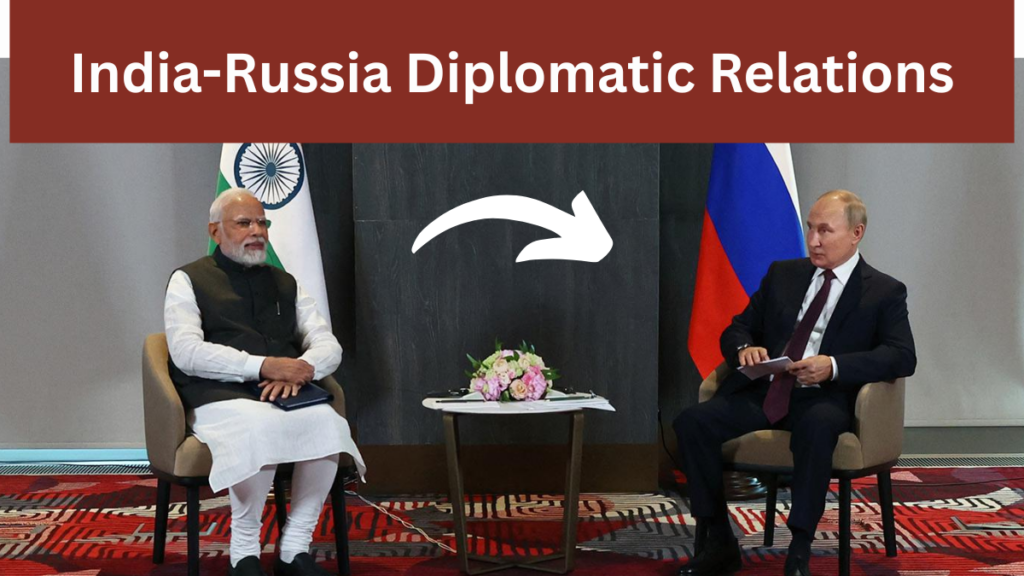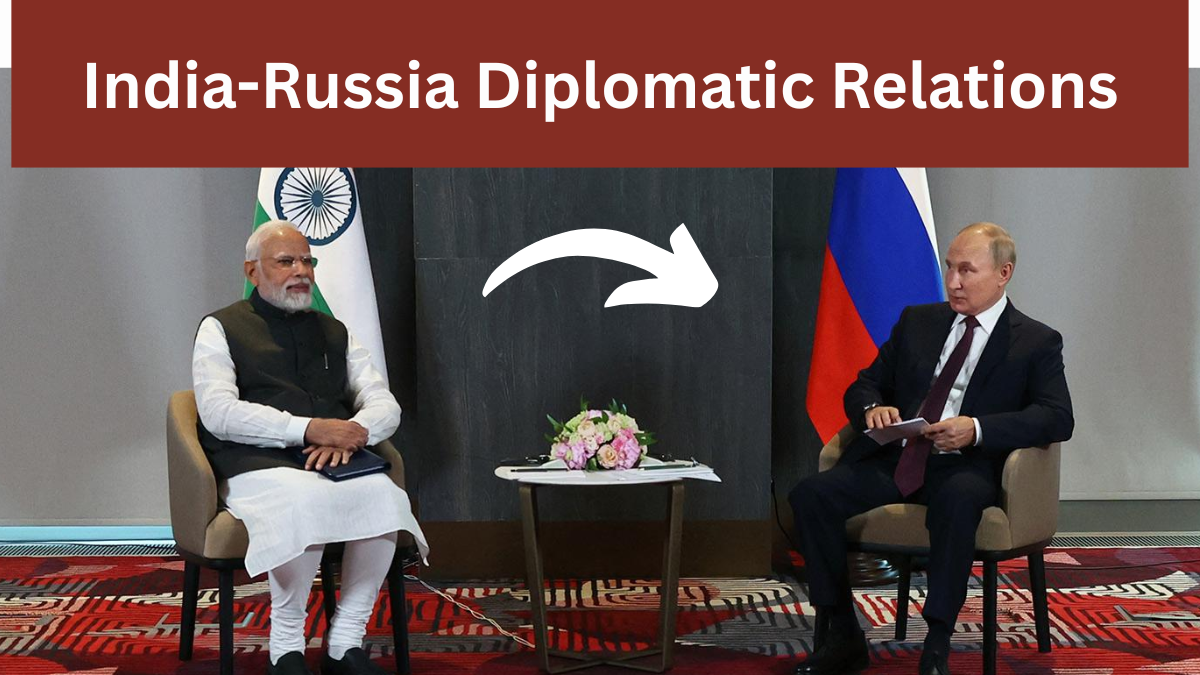The diplomatic ties between India and Russia have witnessed significant developments in recent months. This year promises to be another pivotal moment for both nations as Russian President Vladimir Putin has extended an official invitation to Indian Prime Minister Narendra Modi to attend the Victory Day Parade in Moscow. The parade, held annually on May 9, commemorates Russia’s victory over Nazi Germany in World War II and marks the 80th anniversary of this historic event in 2025.

Key Highlights of the Invitation
-
Invitation for PM Modi to Attend the Victory Day Parade:
The invitation was confirmed by Russian Deputy Foreign Minister Andrey Rudenko, who indicated that the visit is being carefully coordinated. He emphasized that PM Modi has already received the invitation and that plans for his attendance are being worked out. This visit will highlight the strengthening diplomatic relationship between the two countries, especially in the context of current global geopolitics. -
Historical Significance of the Victory Day Parade:
The Victory Day Parade is one of the most important events in Russia’s national calendar, symbolizing the triumph of the Soviet Union over Nazi Germany. On May 9, 1945, the Soviet Red Army successfully defeated Germany, leading to the signing of the Act of Unconditional Surrender, which officially ended the war in Europe. The parade showcases military might and serves as a tribute to those who sacrificed their lives during the war.
India’s Ongoing Diplomatic Engagement with Russia
India has maintained a longstanding relationship with Russia that spans various aspects of cooperation, including defense, energy, trade, and cultural exchange. PM Modi’s forthcoming visit to Russia will be another important chapter in this growing partnership.
-
PM Modi’s Visit to Russia in 2022:
In July 2022, PM Modi visited Russia for the first time in almost five years. This visit took place in the context of a rapidly changing global landscape, with the ongoing conflict between Russia and Ukraine. Before that, PM Modi had visited the Russian Far East city of Vladivostok in 2019 to participate in the Eastern Economic Forum, further cementing ties between the two nations. -
Putin’s Visit to India:
A significant development in 2022 was PM Modi’s invitation to Russian President Vladimir Putin to visit India. Putin has accepted this invitation, and although the dates for the visit have yet to be confirmed, it is expected to take place later this year. This visit will mark Putin’s first trip to India since the Russian invasion of Ukraine in February 2022.
The Growing Importance of Russia-India Relations
The year 2025 brings a deeper sense of strategic alignment between India and Russia, particularly in the context of the current global political climate.
-
Invitation to Leaders of Friendly Nations:
This year’s Victory Day Parade will feature invitations extended to several world leaders, including those from countries that share close ties with Russia. The involvement of India in this historic commemoration further highlights the mutual respect and cooperation between the two countries. Russia views India as an important partner in Asia, and India sees Russia as a key player in ensuring regional stability. -
Russia’s Strategic Diplomacy:
Russia has been actively seeking to strengthen its relationships with various countries, especially as tensions between Russia and the West continue to rise due to the ongoing war in Ukraine. By extending invitations to leaders like PM Modi, Russia aims to project a sense of solidarity and diplomacy in the face of global isolation. For India, attending the Victory Day Parade is an opportunity to demonstrate its commitment to fostering strong bilateral ties with Russia, despite the evolving global challenges.
The Context of Putin’s Visit and India’s Strategic Role
Putin’s visit to India will take place in a backdrop of complex geopolitical dynamics, especially with the ongoing Russia-Ukraine war and the broader international response to it. This is a defining moment for India’s foreign policy as it continues to assert its independence and neutrality in global conflicts while advocating for dialogue and peaceful resolutions.
-
Sergey Lavrov’s Statement on India’s Neutrality:
Russian Foreign Minister Sergey Lavrov has expressed admiration for India’s balanced and consistent position on the Ukrainian crisis. Unlike many Western nations, India has refrained from condemning Russia outright and has called for dialogue to resolve the conflict. Lavrov acknowledged that India’s approach has positioned it as a unique voice in global diplomacy, capable of promoting peace and dialogue. -
The US Involvement and Global Mediation:
The timing of Putin’s planned visit coincides with growing efforts from various international players, including US President Donald Trump, to mediate a ceasefire between Russia and Ukraine. Trump is expected to visit India later this year for the Quad Leaders Summit, a significant gathering of key Indo-Pacific nations. As global powers intensify efforts to resolve the crisis, India’s strategic position will continue to be of crucial importance.
India’s Stance on the Russia-Ukraine War
India’s approach to the Russia-Ukraine conflict has drawn attention from both domestic and international audiences. While India has maintained a neutral position, advocating for peace and dialogue, this approach has been a subject of debate.
-
Shashi Tharoor’s Acknowledgment:
Indian Congress leader Shashi Tharoor recently admitted that he had misjudged India’s stance at the beginning of the Russia-Ukraine war. Speaking at the Raisina Dialogue in New Delhi, Tharoor candidly stated that he had initially criticized India’s neutral position but later realized that the country’s balanced approach enabled it to take on a crucial role in facilitating peace talks. His reflections underline the complexity of global diplomacy and India’s unique role in the unfolding geopolitical events. -
India’s Balanced Position:
India’s decision to not take sides in the Russia-Ukraine conflict has been praised by some, who see it as a pragmatic stance in the face of escalating tensions. By advocating for dialogue and a peaceful resolution, India has positioned itself as a voice of reason on the world stage, balancing its historical ties with Russia while maintaining its global image as a proponent of peace.
Conclusion:
As India prepares to play host to President Putin later this year, the growing partnership between the two nations promises to shape the future of global diplomacy. With geopolitical tensions at an all-time high, India’s neutral stance and its active engagement in international dialogue are seen as critical components of its foreign policy. The forthcoming visits by both PM Modi and President Putin will not only deepen bilateral ties but also reinforce India’s growing influence on the world stage.
FAQs
1. What is the significance of the Victory Day Parade in Russia?
The Victory Day Parade, held on May 9, commemorates Russia’s victory over Nazi Germany in World War II. It is a national celebration that honors the Soviet Union’s role in defeating Nazi forces and showcases Russia’s military strength.
2. Why is PM Modi attending the Victory Day Parade in Moscow?
PM Modi has been invited by Russian authorities to attend the May 9 Victory Day Parade, a symbolic gesture to strengthen India-Russia diplomatic ties and celebrate a historic global victory over Nazi Germany.
3. When did PM Modi last visit Russia?
PM Modi last visited Russia in July 2022, marking his first visit to the country in almost five years. Prior to that, he visited Vladivostok in 2019 for an economic forum.
4. How has India’s neutral stance on the Russia-Ukraine war been received?
India’s neutral stance on the Russia-Ukraine conflict has received both criticism and praise. While some Western nations have criticized India for not condemning Russia’s actions, others have praised India’s balanced approach, seeing it as an opportunity to mediate and promote peace through dialogue.
Click here to learn more
